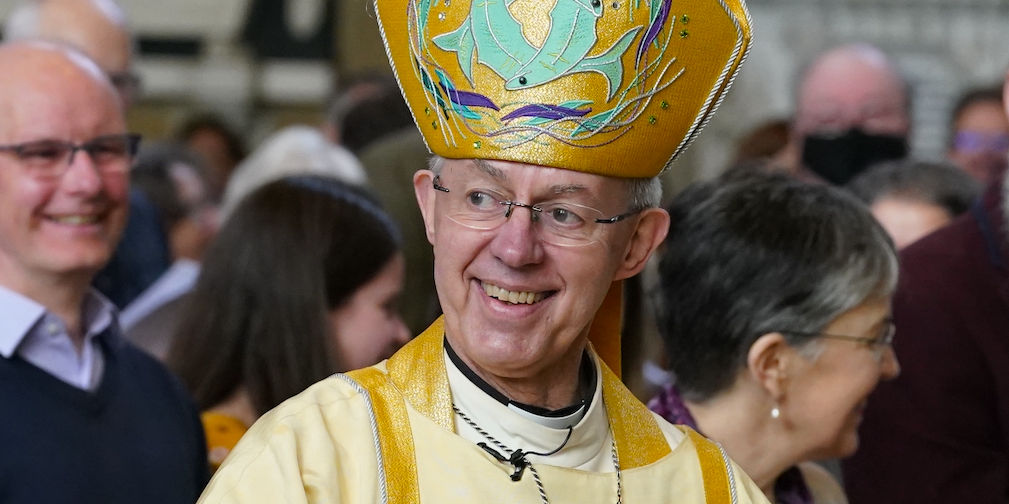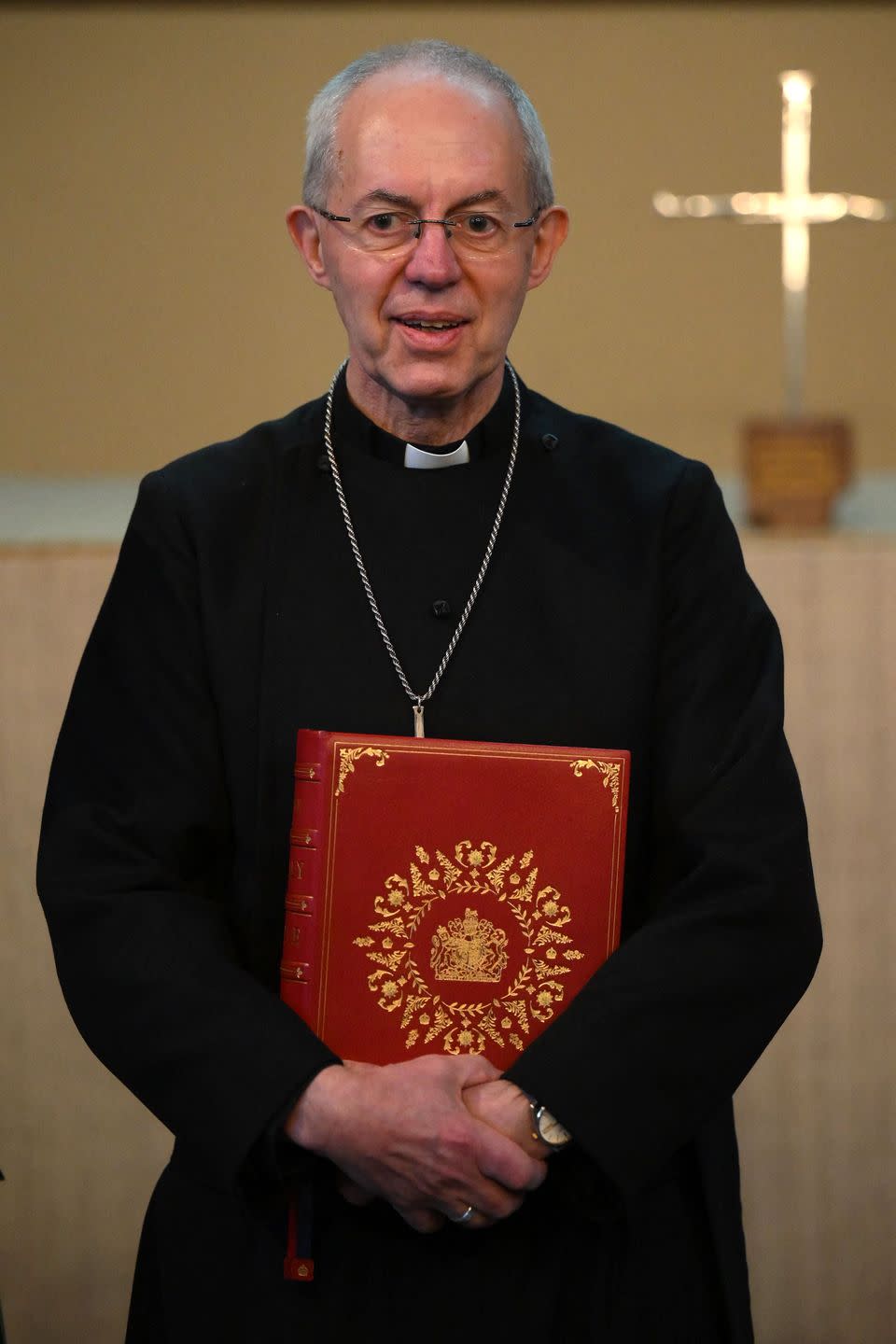The Fascinating Story Behind the Archbishop Leading King Charles III’s Coronation

- Oops!Something went wrong.Please try again later.
- Oops!Something went wrong.Please try again later.
This weekend, the whole world is focusing their attention on what is one of the most historic moments in the 21st century. Eight months after Queen Elizabeth II died at the age of 96, her son King Charles III is stepping into the role of reigning monarch. While he's been using the title of king since September, today cements him as the next ruler of Great Britain. What's more, his royal coronation comes with numerous traditions that connect to the nation's rich history.
Throughout the coronation, viewers will see a number of distinguished officials assist Charles in swearing to be the Sovereign of England. One public figure folks will notice right away is Justin Welby, the current archbishop of Canterbury. According to an official guide from Westminster Abbey, the role the archbishop plays is integral to the events leading up to and during the religious service.
Per the website, he "has authority over all matters regarding the ceremony," which includes preparing the holy church in time for the crowning. He also has the right to officiate and prepare the sections of the service, "officiating at it and of crowning the Sovereign and the Queen Consort if any."

As someone who has such a pivotal part in crowning Charles, it would be expected that Most Reverend Justin always saw being the archbishop of Canterbury as a life path. But the man viewers see on television has a surprising road to religion, and many might be surprised by what the coronation doesn't reveal about the honored religious figure.
Before Most Reverend Justin became a religious official, he got his start working in the financial departments at various oil companies in England. Throughout his 11-year tenure, he worked at a number of places (including as an executive at Elf Aquitaine in Paris) before exiting the field in 1989. The Wall Street Journal reported in 2012 that the archbishop left the field because he felt a calling from God to go into the ministry.
"There was a white light moment in the service in the Church we were at one evening on a Sunday," he told BBC. "Full church — 1,400 people in the church and listening to someone preach and a sense of God saying, 'This is what I want you to do.'"
During his time in the oil industry, Most Reverend Justin began attending services at the Holy Trinity Brompton (HTB) church. The Guardian reported that the HTB's modus operandi is a "larger ambition of electrifying what it sees as the moribund corpse of the established church." This kind of thought intrigued the archbishop, which led to him quitting his job and switching careers. The outlet shared that he was ordained by 1992 and served in a number of different parishes before becoming a canon at the Coventry Cathedral in 2002.
As he worked his way up in the Church of England, Most Reverend Justin took a number of important positions in various universities. After being the dean of Liverpool for four years (2007-2011) and the Bishop of Durham for one year (2011-2012), he was announced as the 105th archbishop of canterbury in late 2012. He succeeded Rowan Williams in the coveted role, who revealed plans to step down in March of that year, per the New York Times.
Since he stepped into the role, Most Reverend Justin has achieved accolades. in 2017, he became the only faith leader to join the UN's High-Level Advisory Board on Mediation and often visits other dioceses in the southern region of the Church of England with his wife Caroline. Being a voice of inclusivity is part of his vision, which he shared with PBS in March 2013.
"We are struggling with very, very significant divisions, different ways of looking at the world coming out of our context, coming out of our history, and learning how we deal with those differences," he told the outlet at the time. "It is the key theological concept for Christian faith, reconciliation with God and the breaking down of barriers between people. And therefore for me, I have this sense that part of the church’s role is to be reconciled reconcilers."
You Might Also Like

